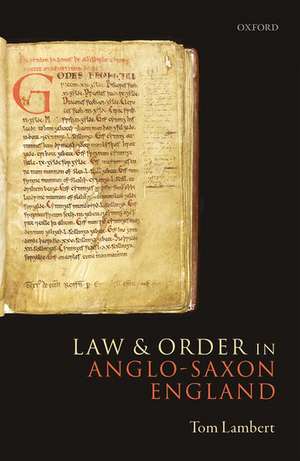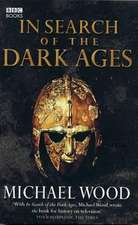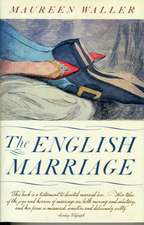Law and Order in Anglo-Saxon England
Autor Tom Lamberten Limba Engleză Hardback – 16 feb 2017
Preț: 733.59 lei
Preț vechi: 1009.12 lei
-27% Nou
Puncte Express: 1100
Preț estimativ în valută:
140.42€ • 152.58$ • 118.03£
140.42€ • 152.58$ • 118.03£
Carte tipărită la comandă
Livrare economică 09-15 aprilie
Preluare comenzi: 021 569.72.76
Specificații
ISBN-13: 9780198786313
ISBN-10: 019878631X
Pagini: 416
Dimensiuni: 161 x 241 x 30 mm
Greutate: 0.72 kg
Editura: OUP OXFORD
Colecția OUP Oxford
Locul publicării:Oxford, United Kingdom
ISBN-10: 019878631X
Pagini: 416
Dimensiuni: 161 x 241 x 30 mm
Greutate: 0.72 kg
Editura: OUP OXFORD
Colecția OUP Oxford
Locul publicării:Oxford, United Kingdom
Recenzii
This is an important book. Representing the most significant rethinking of Anglo-Saxon law and order ... its arguments will be rehearsed and revisited for years to come ... This is a truly superb first monograph, which will not only change the way we approach Anglo-Saxon law and order, but how we think about legislation and society in the early medieval West more generally. I cannot recommend it strongly enough.
Tom Lambert has written an immensely stimulating book, which carefully attempts to piece together the ideal vision of social order lying behind the laws of Anglo-Saxon England. It deserves attention from a wide audience.
Tom Lambert has produced an enormously rich book - essential reading for anyone interested not just in the law, but in the society and rule of early England.
Law and Order in Anglo-Saxon England makes good on its promises, persuasively demonstrating the role of Anglo-Saxon communities in enforcing law, and the role of legal assemblies in constituting communities, over the course of four centuries. It is precisely because it able to draw these imaginative connections, engaging with matters of identity and community as much as it does legal and social order, that this book deserves a wide audience.
this book is an important contribution to the scholarship on Anglo-Saxon law and legal culture, one that deserves a place in bibliographies and classrooms, and will certainly have a place in my own.
Tom Lambert has written an immensely stimulating book, which carefully attempts to piece together the ideal vision of social order lying behind the laws of Anglo-Saxon England. It deserves attention from a wide audience.
Tom Lambert has produced an enormously rich book - essential reading for anyone interested not just in the law, but in the society and rule of early England.
Law and Order in Anglo-Saxon England makes good on its promises, persuasively demonstrating the role of Anglo-Saxon communities in enforcing law, and the role of legal assemblies in constituting communities, over the course of four centuries. It is precisely because it able to draw these imaginative connections, engaging with matters of identity and community as much as it does legal and social order, that this book deserves a wide audience.
this book is an important contribution to the scholarship on Anglo-Saxon law and legal culture, one that deserves a place in bibliographies and classrooms, and will certainly have a place in my own.
Notă biografică
Tom Lambert was born and grew up in York. He spent nearly a decade based at the University of Durham, as an undergraduate, postgraduate, and seminar tutor. Since gaining his doctorate in 2009, he has held a Past and Present Postdoctoral Fellowship at the Institute of Historical Research in London, and spent five very happy years teaching and researching in Oxford. Much of the work for Law and Order in Anglo-Saxon England was carried out between 2012 and 2015, when he was the Bennett Boskey Fellow in History at Exeter College, Oxford. He is now a Fellow of Sidney Sussex College, Cambridge.


















